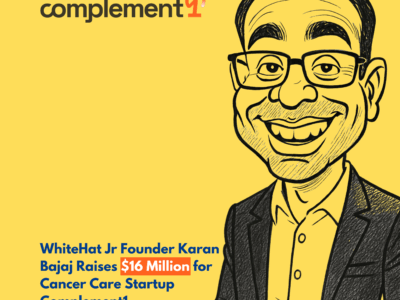
Just saw a post that said,
“Bombay Shaving Company is a podcast company that sells razors.”
And saw the ‘discussion’ on that post. So, I did what any true-blue LinkedInner would do. Use that as a subject of my next LinkedIn post.
Sometimes, I think the only people making money on LinkedIn are the ones who are teaching others to make money on LinkedIn, the only people getting engagement on LinkedIn are the ones teaching others to get engagement on LinkedIn, the only people getting popular on LinkedIn are the ones teaching others how to get popular on LinkedIn. There are, of course, the other type of people who want to make money, get engagement, and be popular, not necessarily in that order, I suspect, who are the ones that want to use the posts of those who are making money, generating engagement, and getting popular as launchpads to disagree with them to, I think you know the drill by now, make money, get engagement, and be popular on LinkedIn.
I am no exception.
Having said that, here is what I believe.
In an increasingly commoditised world, it isn’t the product that sells. It is the brand. It doesn’t matter where BSC sources, say, its razors from, whether they make it in their own factories or buy it off a Chinese bulk manufacturer or whether every morning, Shantanu Deshpande himself comes to your house to personally shave you. What they are buying is more or less the same quality as a Gillette or a Personna or a Merkur or a SuperMax (I swear I had to look these up on Google, THAT is how little I care about shaving equipment), with some difference in the finer things. None of them will cut you, hurt you, or give you a bad shave. In short, they all get the job done. None of them will ever be seen by anyone outside your housemates. None of these are an ‘extension of your personality’. Indeed, in a ‘blind shaving’, I can guarantee you not one single person will know what blade or foam or cream they used.
Side note: What do I use? I used to have a Gillette. Why? I have no clue. Maybe that’s the one my store had. And now, I use a BSC. Again why? Because my daughter gifted me a set on some Father’s Day, I forget which year.
So, why does Gillette sell so much (it has almost 50% market share in India)? Because it spends money on marketing, advertising, and PR. It spends money on distribution. And it spends money on innovation. Just last year, it spent close to Rs.500 Cr just on advertising and publicity.
Shantanu’s raised a total of only around Rs.400 Cr! How does he compete? By being smart.
You see, the old adage that people buy from people they like holds true even in this world hypersaturated with ‘influencers’. With one small tweak. People don’t necessarily buy from people they like but from people they know. People who are recognisable. People that they see all the time. Today’s startup entrepreneurs know this. And the best way for people to like you is to appear before them as unfiltered as possible. And video recorded podcasts, or vodcasts as it seems they are called (horrid name), are the best bang for your buck. You need minimal sets, equipment, or skills to record it. All you need is to have something interesting to say. And if you are as well-spoken, articulate, and camera-comfortable as Shantanu, it doesn’t even seem like work.
His vodcasts (I barf every time I type that word) make him popular; whether or not all of that is favourable to him is immaterial, given that all publicity is good publicity. Just ask Khloe Kardashian. or James Donaldson. Or Gaurav Taneja. Or Jordan Peterson. Or, indeed, even Alex Jones. Controversy sells personalities. Because it makes you famous. And fame sells products. But to get to the point where it will, you need to be well-known. And vodcasting is the easiest road to it. Unless you are a Narayana Murthy, or S N Subrahmanyan, or Anand Mahindra. But if you are not, but you are well-connected and privileged in other ways, vodcasting is a great PR tool.
Of course, the exact opposite of every brilliant strategy is another brilliant strategy. So, I am sure there are outliers. That there are founders whose strategy is to stay low and away from the limelight. And it helps their brand and their sales. I say, good for them. But I am not here to discuss that. I want to talk of why people like Shantanu, amongst other startup entrepreneurs, take to vodcasting.
But all-in-all, the cycle is like this: BSC’s marketing and ad spend feeds into Shantanu’s public persona, which feeds into his vodcast engagement, which feeds into the sales of BSC (or will eventually) or at the very least, raises its valuation, the news of which makes him and his brand even more famous, feeding into his vodcast feeding into his followership feeding into his sales.
So, if you are an entrepreneur, you have two choices: take a leaf out of his book and see what you can learn from Shantanu. Or use the fact that he is, at the time of writing this at least, more famous for his interesting vodcasts and controversial statements than his brand or product line to create content so you can ride on that to get you engagement to get you famous to feed into whatever it is that you are selling.
Which is, in a way, doing what he is doing. As am I.



















